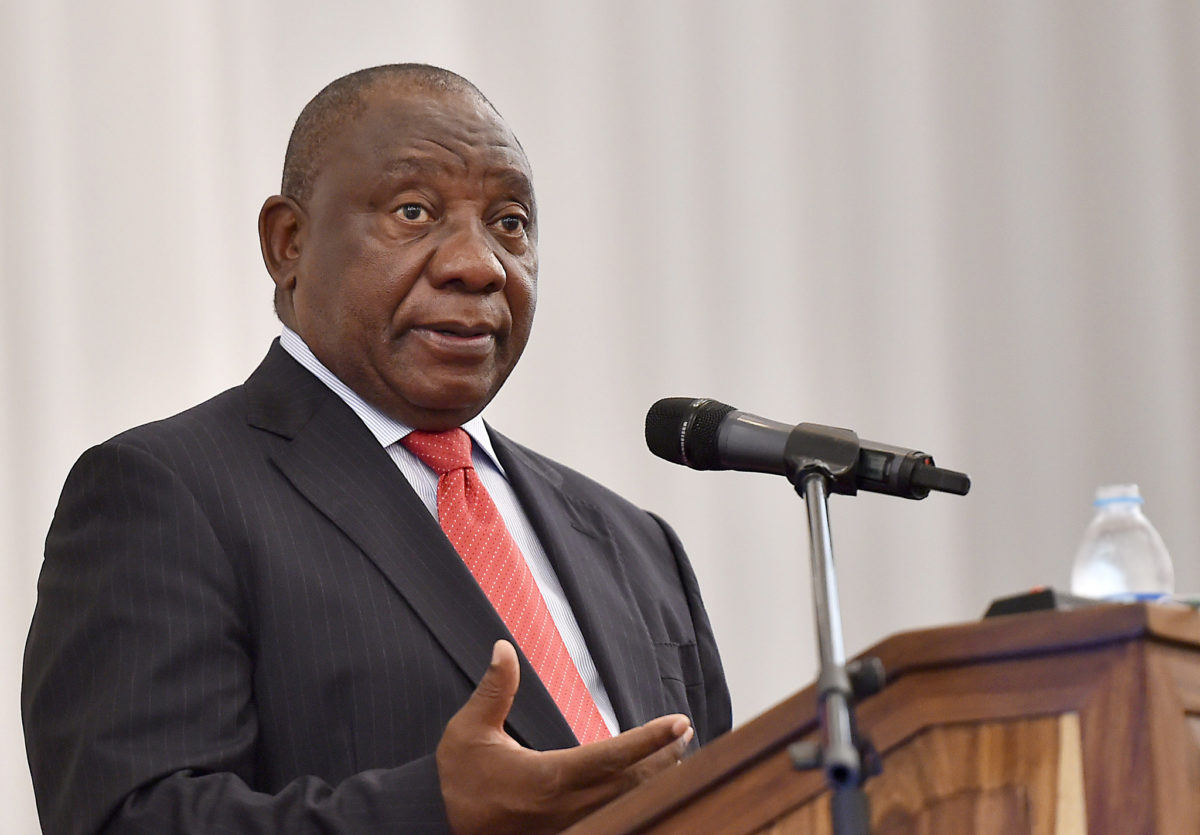South African president Cyril Ramaphosa used his State of the Nation speech to address one of the key issues facing the country’s energy sector, the long-running financial crisis at state-owned electric utility Eskom.
The struggles of the power company have represented the main roadblock to the deployment of solar and other renewables in South Africa in recent years.
Ramaphosa said, in his speech last week, bold steps must be taken to avert a crisis at the utility. “To bring credibility to the turnaround and to position South Africa’s power sector for the future, we shall immediately embark on a process of establishing three separate entities – Generation, Transmission and Distribution – under Eskom Holdings,” the president said. “This will ensure that we isolate cost and give responsibility to each appropriate entity.”
The split, Ramaphosa said, would also enable the three new entities to better raise funding. “It is imperative that we undertake these measures without delay to stabilize Eskom’s finances, ensure security of electricity supply and establish the basis for long-term sustainability,” he added.
Debt pile
Eskom’s debt mountain, according to its financial results, stood at around ZAR419.2 billion ($30.8 billion) at the end of September. As Eskom is the buyer of the power generated thus far under the country’s Renewable Energy Independent Power Producer Procurement program (REIPPP), its lack of funds has pushed it to delay the signing of several PPAs awarded in rounds 3.5 and four of the program.
Despite that slowdown, 27 outstanding PPAs were signed in April and a new 1.8 GW round to be held this year was announced.
In March 2017, French development agency the AFD agreed to provide Eskom with a multi-tranche ZAR6 billion credit facility, intended for projects which are part of the utility’s grid improvement plan to integrate renewable energy and develop transnational power supply networks.
Caution must be advised
Popular content
Consultants Frost & Sullivan said Ramaphosa’s plan to unbundle the troubled utility, although it may be not sufficient to solve Eskom’s travails, could address its inefficiency and reduce losses while favoring the adoption of clean energy and energy efficiency across generation, transmission and distribution.
“Opening the market through power being procured from various power sources would also invite companies to South Africa to look at distributed generation and electric mobility, which is already being looked at in many other countries,” said analyst Neeraj Sanjay Mense. “South Africa could also see companies moving into the country to manufacture batteries, as we have the needed natural resources and energy storage is an essential element in the wind and solar grid.”
Mense, however, also stressed the risks for Eskom posed by a larger share of renewables in the country’s energy mix. “With all the different sources of power which are coming into play, such as wind and solar, and the cost of alternate energy generation reduced below that of coal, buying from private players such as the IPPs [independent power producers] within the Renewable Energy Independent Power Producer Procurement program could potentially result in a shutdown of some of Eskom’s existing plants,” he said. Eskom, said Mense, is not preparing to face this potential headache.
Opposition from local unions
The plan to split the utility has encountered opposition from the South African Federation of Trade Unions (SAFTU). “SAFTU simply does not trust that the president will keep the promise to consult unions and that the government will embark on a just transition to protect jobs,” said a statement from the union. “What has stopped the government from consulting [the] workers and communities of [coal producing] Mpumalanga when [it] signed 27 agreements with independent power producers?”
Unions representing coal industry employees fear the REIPPP will threaten jobs in their industry. The National Union of Metalworkers of South Africa and Transform RSA NPC went to the North Gauteng High Court in Pretoria in an attempt to prevent Eskom signing the 27 outstanding PPAs agreed under the renewables procurement program.
“The signing of the IPP means that Eskom will require less coal fired electricity,” the two unions said at the time. “This is likely to lead to the closure of the coal fired power plants and the impact will be that at least 30,000 working class families will suffer because of job losses.”
In last week’s statement, SAFTU made clear the proposed privatization of Eskom would not be welcomed. “The announcement of the unbundling of Eskom is a declaration of war,” said the organized labor group. “[The] government should expect resistance from the poor and workers.”
This content is protected by copyright and may not be reused. If you want to cooperate with us and would like to reuse some of our content, please contact: editors@pv-magazine.com.



3 comments
By submitting this form you agree to pv magazine using your data for the purposes of publishing your comment.
Your personal data will only be disclosed or otherwise transmitted to third parties for the purposes of spam filtering or if this is necessary for technical maintenance of the website. Any other transfer to third parties will not take place unless this is justified on the basis of applicable data protection regulations or if pv magazine is legally obliged to do so.
You may revoke this consent at any time with effect for the future, in which case your personal data will be deleted immediately. Otherwise, your data will be deleted if pv magazine has processed your request or the purpose of data storage is fulfilled.
Further information on data privacy can be found in our Data Protection Policy.